Overview
The article delineates ten essential tools for automating land registry tasks:
- Parse AI
- LeadSimple
- Zapier
- Buildium
- Process Street
- Slack
- Mailchimp
- UpKeep
- Second Nature
- AppFolio
Each tool significantly enhances operational efficiency by streamlining critical processes such as title research, communication, maintenance management, and billing. Consequently, this automation empowers real estate professionals to concentrate on more strategic activities, ultimately improving overall productivity.
Introduction
As the real estate landscape evolves, the demand for efficiency in land registry tasks has reached unprecedented levels. Professionals in this sector are increasingly adopting innovative tools designed to automate processes, streamline communication, and enhance overall productivity. This article explores ten essential tools poised to revolutionize land registry operations, providing insights into how automation can alleviate burdens and improve accuracy. However, with a plethora of options available, how can one discern which tools genuinely fulfill their promises and address the unique challenges of the industry?
Parse AI: Advanced Automation for Title Research and Document Processing
harnesses advanced machine learning algorithms and to automate the extraction of . This innovative technology offers tools for , for and enabling professionals to concentrate on more strategic tasks. Furthermore, by delivering accurate and rapid data extraction, Parse AI through tools for . Consequently, they can in a fraction of the time traditionally necessary.
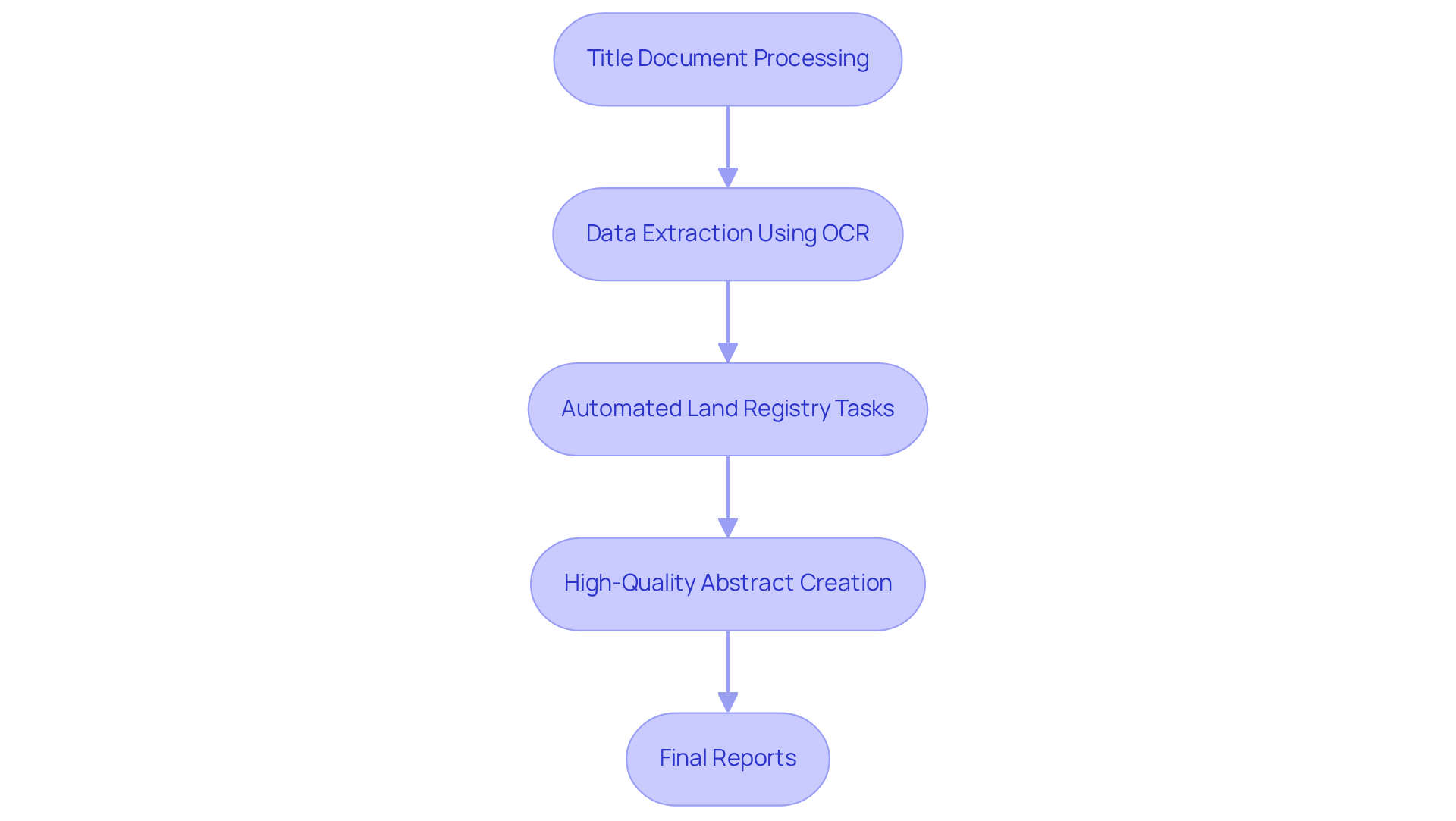
LeadSimple: Streamline Communication and Account Management
LeadSimple stands out as an effective CRM specifically tailored for real estate professionals, facilitating and streamlined account oversight. With features such as and task reminders, LeadSimple ensures that no client interaction slips through the cracks. This tool not only enhances communication efficiency but also aids real estate supervisors in maintaining organized records of client interactions, ultimately leading to and retention. According to Salesforce, businesses leveraging of 29%, underscoring the potential impact of LeadSimple on .
However, it is crucial to acknowledge that:
- 30% of users encounter .
- 32% cite a lack of technical expertise as a barrier to effective CRM usage.
Successful implementations of LeadSimple have demonstrated that real estate firms can achieve significant improvements in client retention rates by utilizing tools for , resulting in a more streamlined and efficient oversight process. To maximize the benefits of LeadSimple, managers should prioritize integrating the CRM with existing systems and ensuring that their teams receive adequate training to utilize its features effectively.
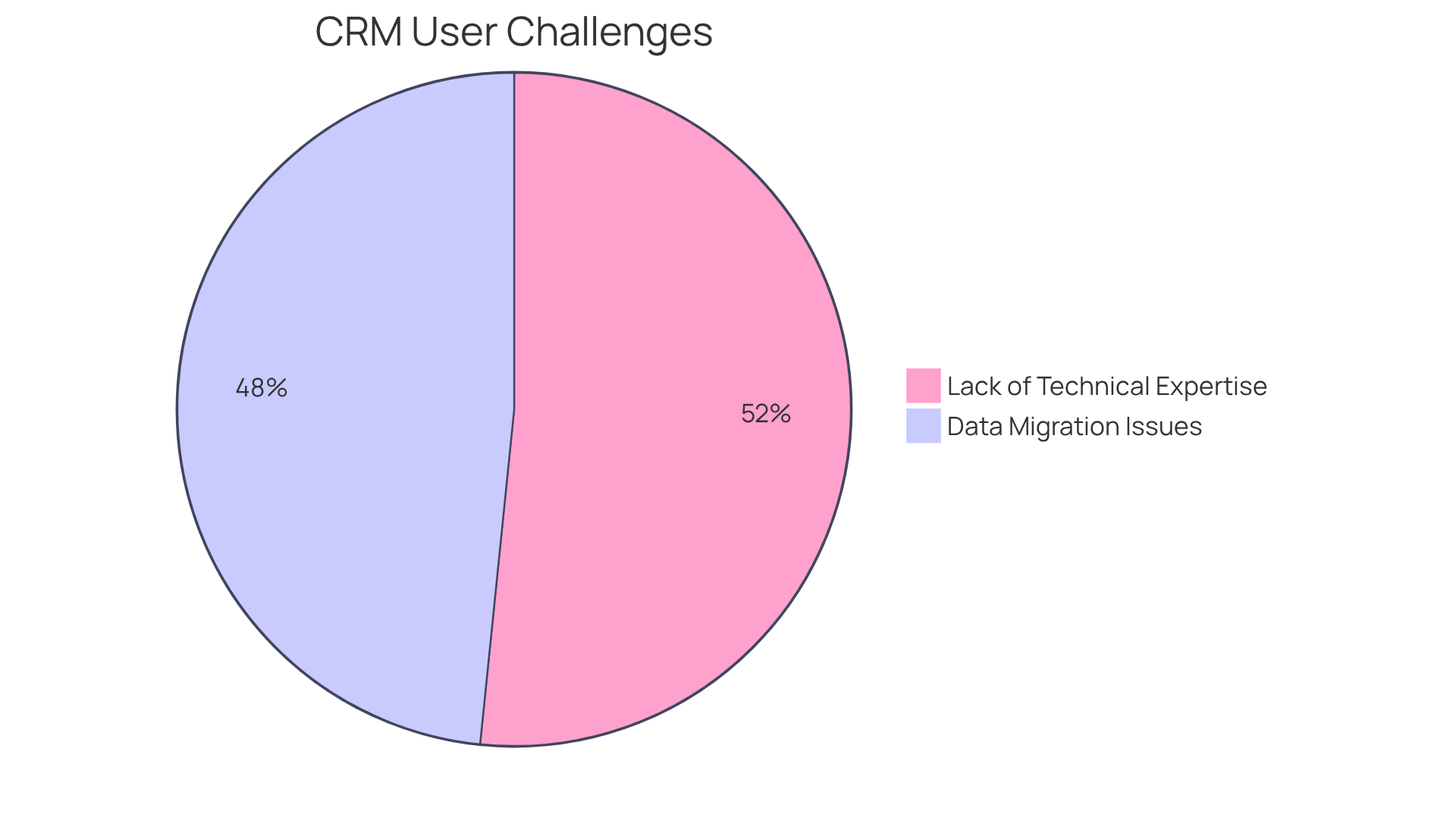
Zapier: Connect and Automate Your Land Registry Applications
Zapier functions as a powerful that connects various applications, enabling users to establish workflows that eliminate repetitive tasks. In the realm of land registry applications, Zapier significantly enhances through the use of and synchronizing data between systems, such as real estate software and communication tools. This seamless integration minimizes manual data entry, thereby reducing errors and ensuring that all stakeholders have access to the most current information. Consequently, the overall workflow becomes more streamlined, allowing to concentrate on strategic tasks rather than administrative burdens.
For instance, achieved a remarkable 75% reduction in documentation process time after implementing s, illustrating the tangible benefits of such integrations. Furthermore, as noted by RCLCO:
- ' is an impressive boardroom statistic by any standard.'
Real-world examples demonstrate how tools for automating land registry tasks are revolutionizing the processes, making them faster and more reliable.
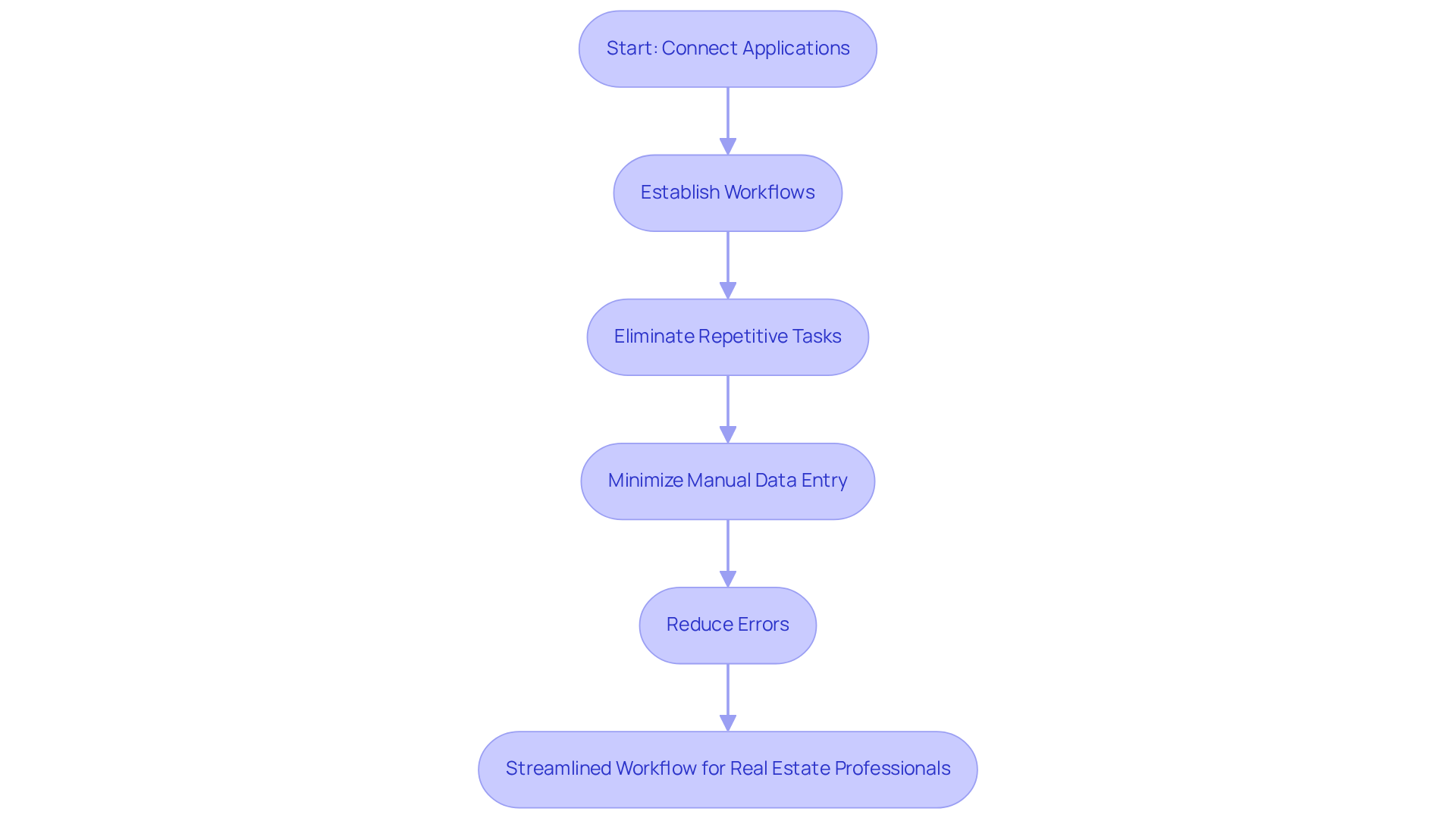
Buildium: Automate Rent Collection and Maintenance Requests
Buildium stands as a powerful software solution for , automating essential tasks such as rent collection and . By facilitating online rent payments and providing residents with a platform to report maintenance concerns, Buildium significantly streamlines the oversight process for . This automation not only alleviates but also enhances by ensuring prompt responses to maintenance requests and enabling smooth payment processes.
In the context of the digital evolution within the real estate management sector, where 85% of administrators assert that , such as tools for , is crucial for business success, the convenience of becomes paramount. Notably, 72% of renters express a preference for digital communication, underscoring the necessity of to foster positive relationships with residents. Furthermore, with 39% of real estate supervisors dedicating over 20 hours each month to managing maintenance requests, the efficiency gained through using tools for automating land registry tasks is substantial.
Success stories from managers who have embraced maintenance request automation reveal a significant increase in , demonstrating the effectiveness of technology in efficiently addressing tenant needs.
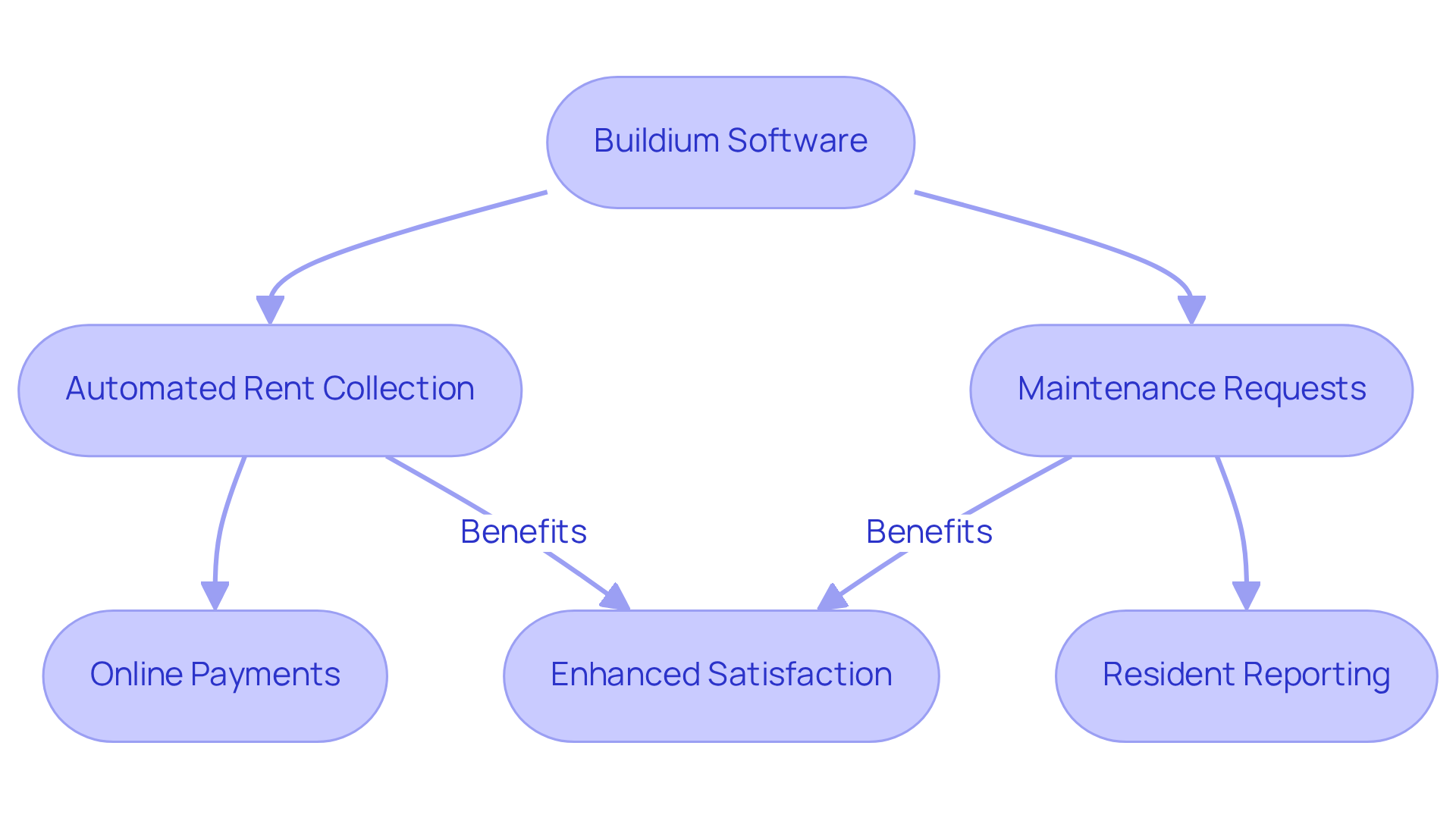
Process Street: Optimize Workflows for Land Registry Tasks
Process Street serves as a powerful , expertly designed to streamline and optimize various tasks, especially as it provides tools for automating . By providing , it guarantees that every step in a process is executed consistently, significantly minimizing the risk of errors. This consistency is particularly crucial in land registry operations, where are paramount.
For example, the implementation of has resulted in a remarkable increase in processing efficiency, with for guaranteed information services within three working days, processing over 21 million requests, with more than 89% automated. Furthermore, the use of checklists not only enhances compliance but also fosters accountability among team members, ensuring that all regulatory requirements are met.
As Mark Gray, Chief Transformation and Technology Officer, emphasizes, 'Improving our service has remained, and will continue to remain, our number one priority.' This unwavering commitment to excellence is echoed by Simon Hayes, Chief Executive and Chief Land Registrar, who states, 'We have continued to address a number of long-standing issues, including increasing our capability and capacity to provide a better service to our customers.'
Such dedication is evident in the , which empowers teams to maintain organized and efficient operations while adhering to the highest standards of compliance. Additionally, and reducing errors, clearly outlining and making accessible all procedures.
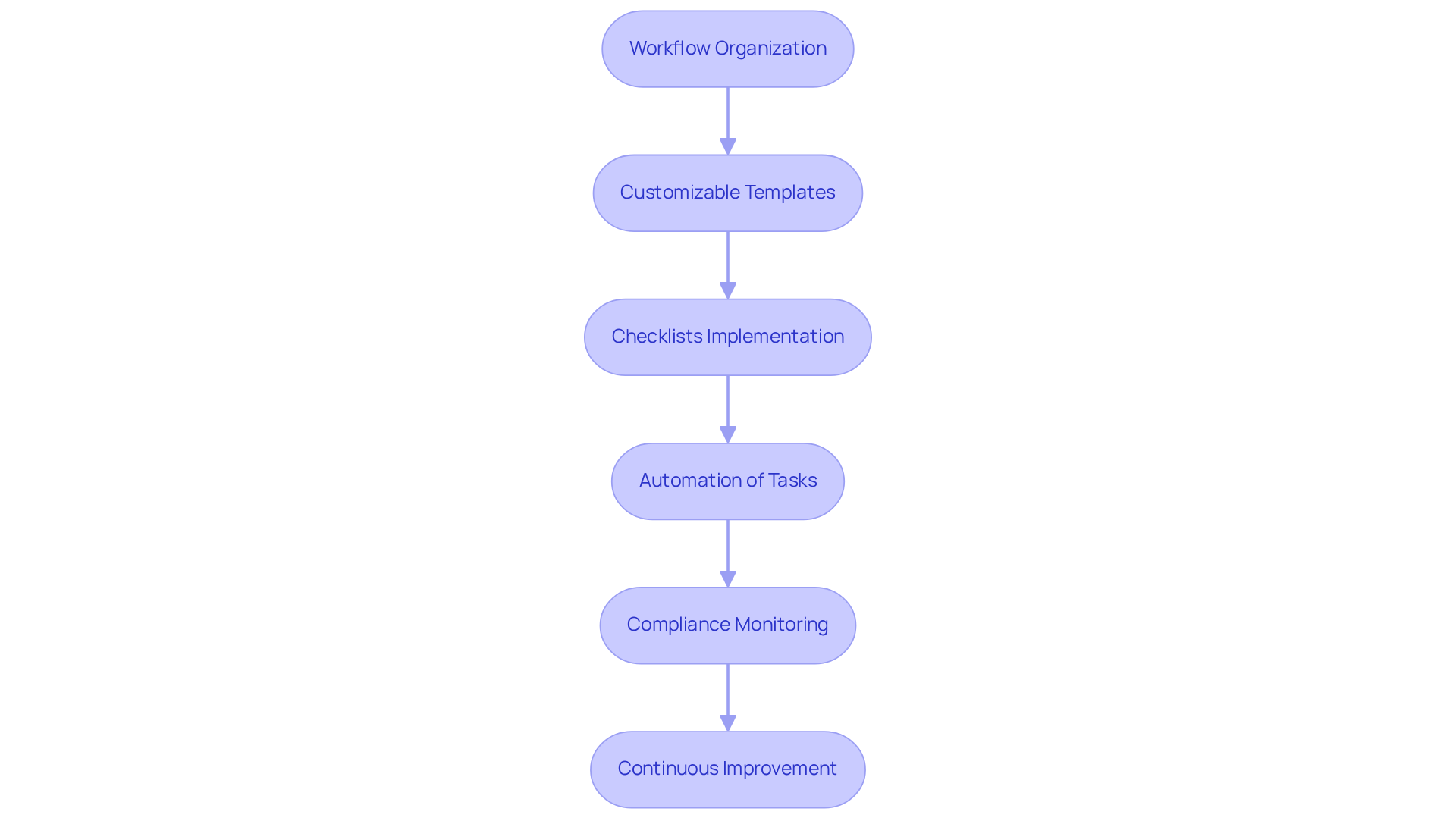
Slack: Enhance Team Communication for Land Registry Operations
Slack serves as a pivotal communication platform that significantly enhances collaboration among through its , file sharing, and seamless integration with various tools. By facilitating swift discussions and enabling the sharing of updates, Slack empowers teams to coordinate tasks effectively. This immediacy in communication allows to respond promptly to inquiries and resolve issues, thereby and ensuring alignment on project objectives.
Furthermore, teams utilizing Slack have reported marked improvements in , with many noting that the platform has reduced response times and fostered a more cohesive working environment.
As Jeff Bezos stated, 'If you make customers unhappy in the physical world, they might each tell six friends. If you make customers unhappy on the internet, they can each tell 6,000 friends.' This highlights the transformative role of real-time messaging in within real estate administration and utilizing tools for .
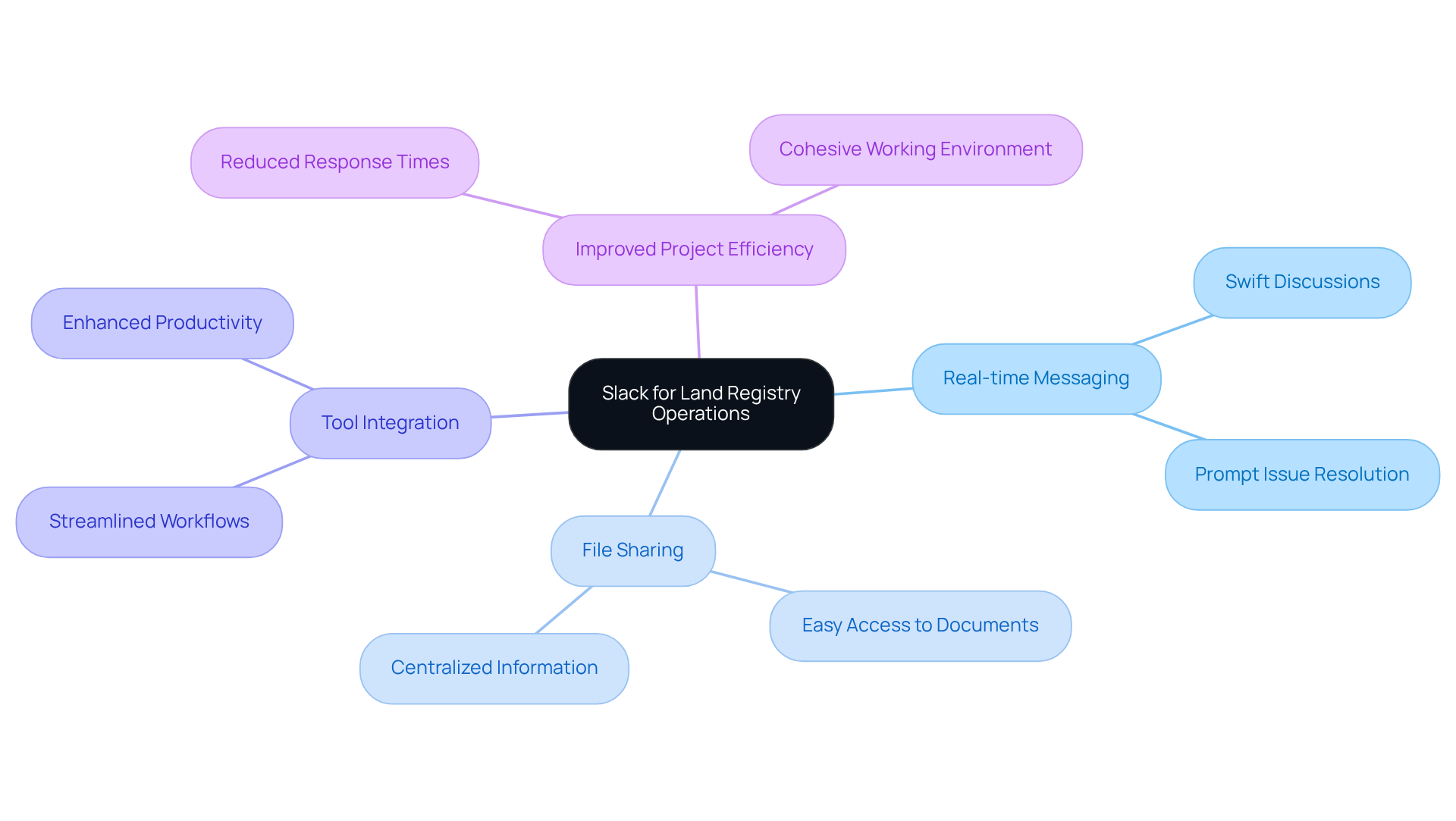
Mailchimp: Automate Communication with Stakeholders
Mailchimp serves as a robust marketing automation platform that streamlines email communications within the real estate sector. By and segmenting audiences, Mailchimp guarantees that stakeholders receive timely updates and pertinent information tailored to their specific needs. This method not only conserves valuable time but also significantly enhances engagement; can result in a and a . Furthermore, personalized emails yield six times higher transaction rates compared to their non-personalized counterparts, underscoring their effectiveness in driving engagement and sales.
For real estate professionals, leveraging Mailchimp's capabilities is essential for with clients and partners, ultimately and loyalty. As Richard Branson aptly noted, "," emphasizing the critical role of effective communication in sustaining these relationships.
However, it is imperative to remain cognizant of potential downsides; 28% of unsubscribes stem from content perceived as overly salesy or spammy. Consequently, a balanced approach to email marketing is paramount.
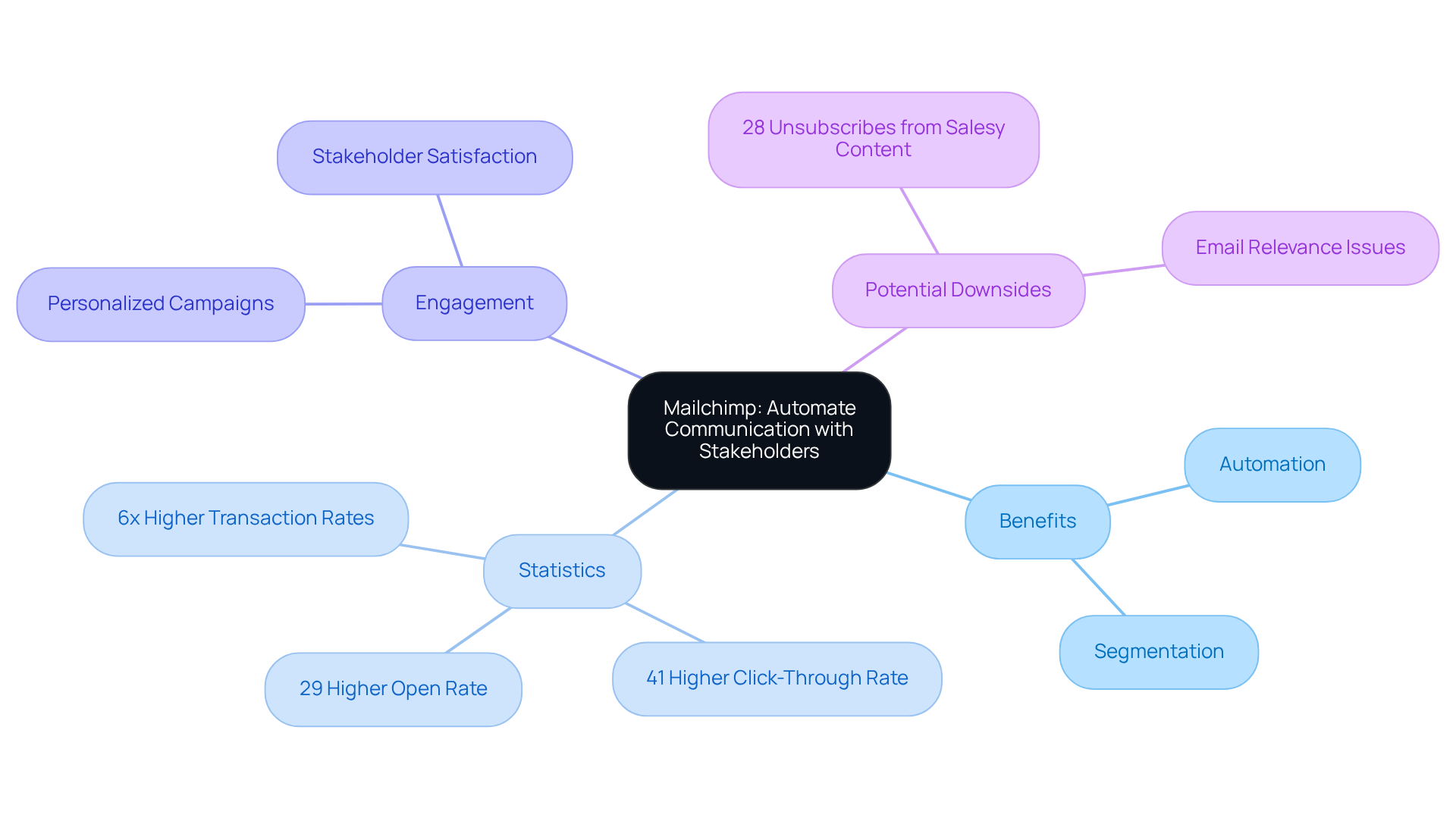
UpKeep: Automate Maintenance Management for Land Registry
UpKeep is a cutting-edge that revolutionizes facility maintenance operations through automation. By utilizing tools for , UpKeep significantly enhances the efficiency of work order creation, tracking, and reporting. This automation ensures that maintenance issues are addressed swiftly, minimizing downtime and .
In fact, building overseers utilizing automated systems report , as prompt responses to maintenance inquiries foster a positive living experience. Notably, 39% of real estate supervisors spend over 10 hours each month managing maintenance requests, underscoring the efficiency gains achievable with UpKeep.
Furthermore, with 61% of landlords identifying maintenance as the most challenging aspect of their role, UpKeep's automation directly tackles this critical pain point. Success stories from various real estate firms illustrate that implementing UpKeep has led to a and resident satisfaction, ultimately preserving the overall condition of buildings and enhancing their market value.
As the real estate oversight sector undergoes a , UpKeep empowers building supervisors to focus on strategic growth while ensuring their assets are well-maintained and residents are satisfied.
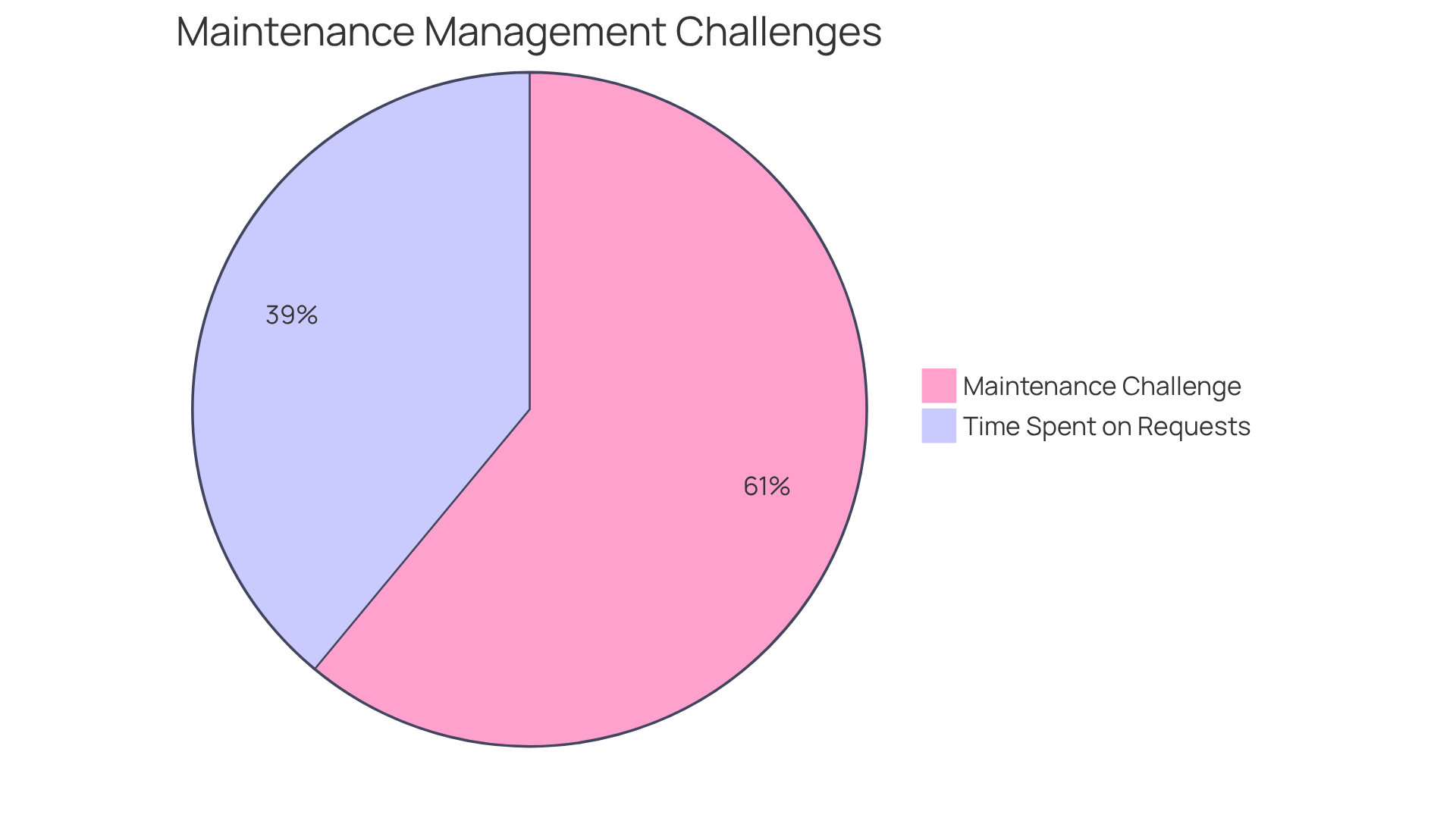
Second Nature: Automate Utility Billing and Expense Management
Second Nature revolutionizes utility billing and expense oversight for real estate administrators by . This platform ensures that utility costs are meticulously monitored and charged to tenants without delay, significantly reducing the administrative burden for real estate supervisors. By , supervisors can refocus on more critical responsibilities, thereby .
Furthermore, the integration of automated systems streamlines billing and minimizes errors, guaranteeing that utility payments are processed accurately and punctually. The scalability of automation empowers real estate overseers to manage expanding portfolios efficiently without additional administrative effort. This transition towards automation is reshaping how landlords handle expenses, resulting in and more effective financial oversight.
Additionally, automated systems aid in , further enhancing the operational framework for managers. The ability to leverage fosters , providing insights essential for effective financial oversight.
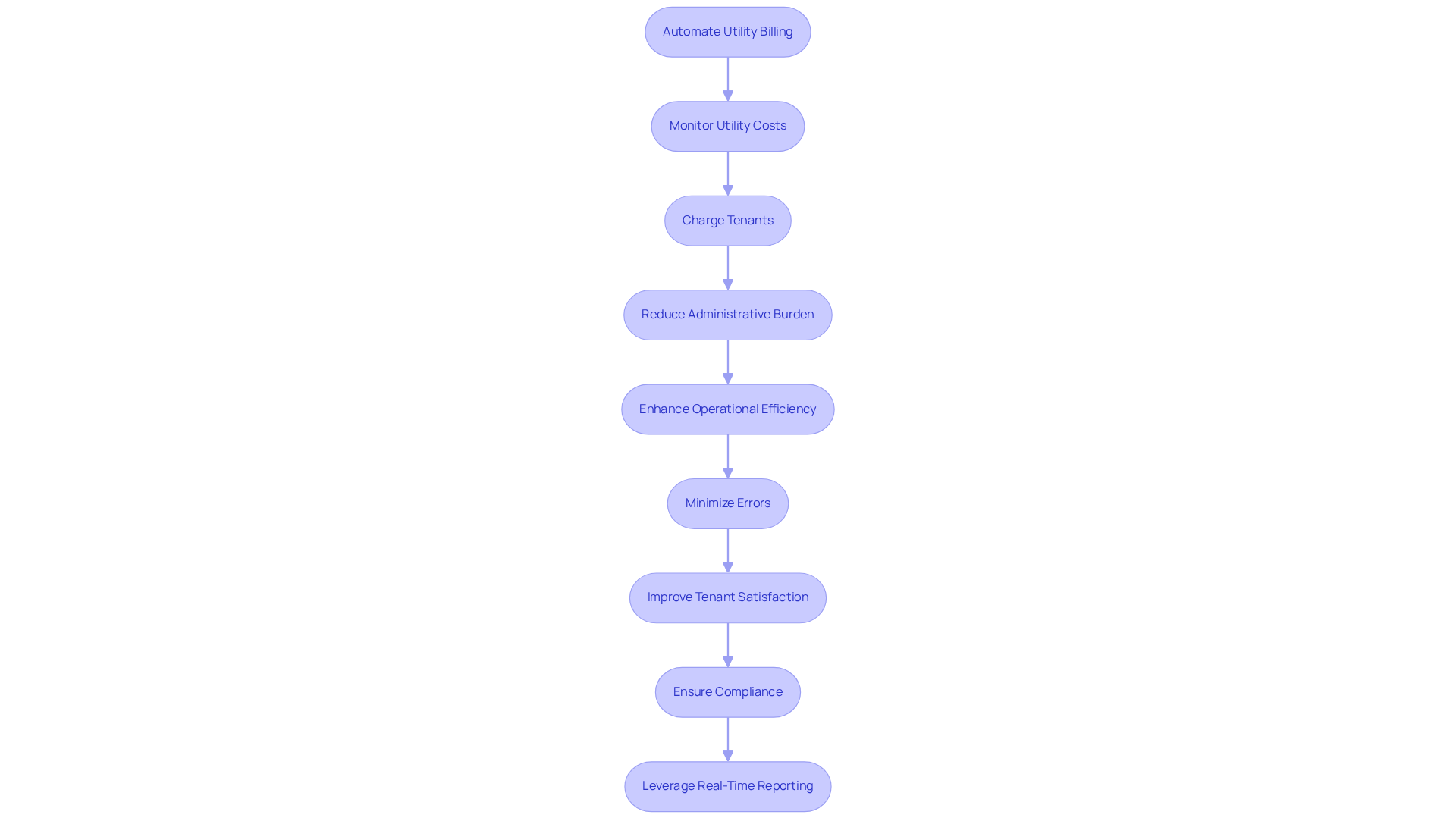
AppFolio: Comprehensive Automation for Tenant Management and Lease Renewals
AppFolio is a comprehensive management software that automates resident management tasks, including lease renewals, rent collection, and maintenance requests. By offering a centralized platform for managing resident interactions, AppFolio for occupants. The automation of lease renewals guarantees that managers can effectively manage renewals without overlooking crucial deadlines, ultimately resulting in and satisfaction. Notably, through personalized emails, SMS, and voice calls, significantly enhancing tenant engagement.
Businesses using AppFolio's software have reported an average ROI of 121% over three years, highlighting the financial advantages of adopting tools for in the realm of real estate oversight. Furthermore, with the property management software market valued at $3.04 billion and projected to grow at a CAGR of 45.6% from 2022 to 2030, the relevance of such solutions is clear. More than 70% of residents favor customized renewal notifications instead of standard ones, emphasizing the significance of .
This proactive approach not only improves operational efficiency but also has the potential to achieve a , highlighting the transformative impact of in the industry.
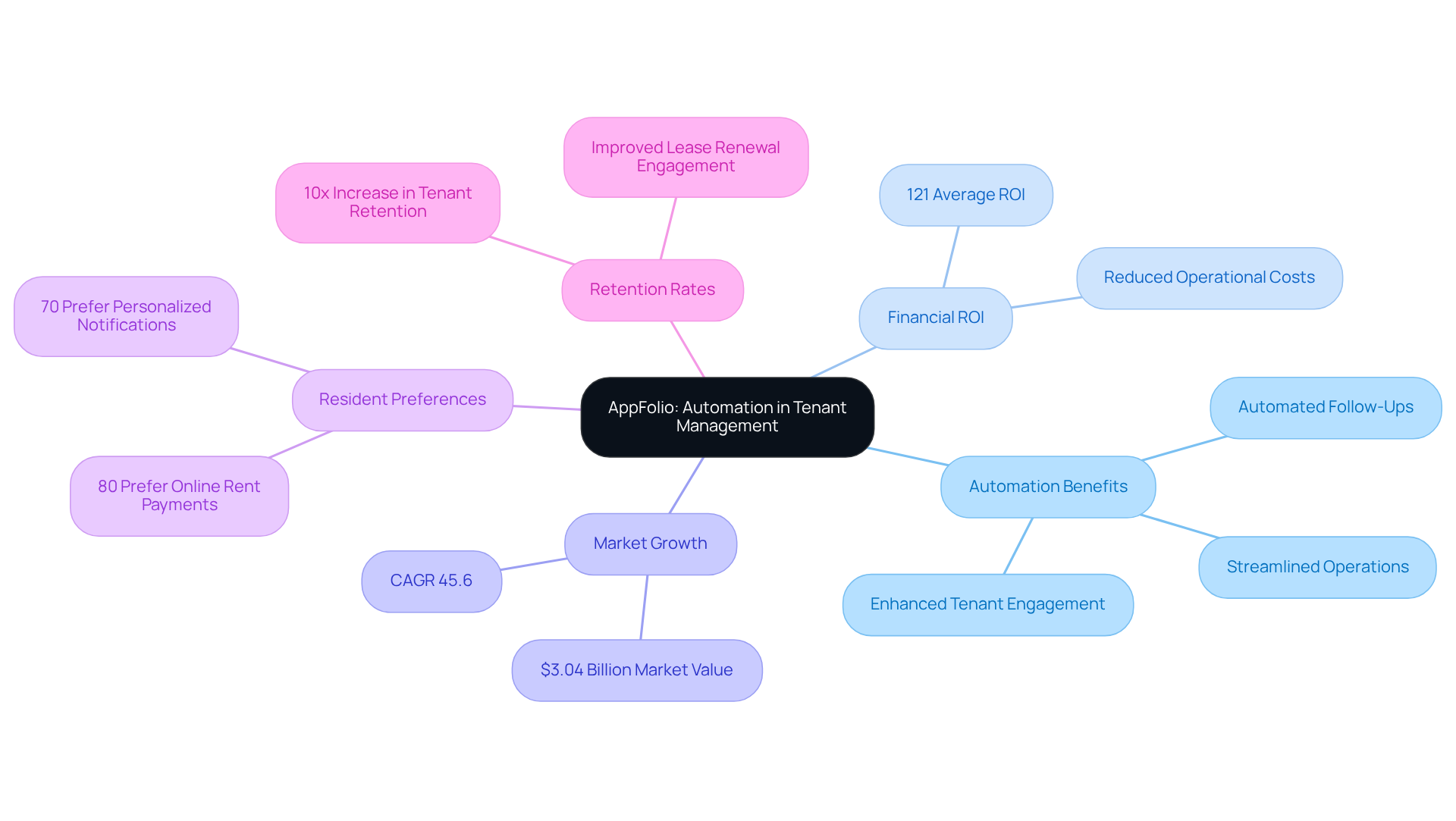
Conclusion
The integration of automation tools in land registry tasks is not merely a trend; it is a necessity for enhancing operational efficiency and accuracy. By leveraging advanced technologies, professionals can streamline workflows, reduce manual errors, and concentrate on more strategic, high-value activities. The tools discussed, from Parse AI to AppFolio, exemplify the transformative power of automation in the real estate sector, enabling organizations to meet the demands of a rapidly evolving landscape.
Key insights from this exploration underscore the significant benefits of automation, including:
- Improved communication through platforms like LeadSimple and Slack
- Enhanced data management with Zapier
- Optimized workflow processes via Process Street
Moreover, tools such as Buildium and UpKeep demonstrate how automating maintenance and billing can lead to higher tenant satisfaction and retention rates. The statistics presented, including the impressive ROI from AppFolio and the time savings realized through Zapier, highlight the tangible impact these tools can have on operational success.
As the real estate industry continues to embrace digital transformation, the importance of adopting these essential automation tools cannot be overstated. Stakeholders are encouraged to consider how these technologies can be integrated into their operations to not only improve efficiency but also elevate the overall customer experience. The future of land registry tasks lies in automation; those who leverage these tools will be well-positioned to thrive in a competitive market.
Frequently Asked Questions
What is Parse AI and how does it assist in title research?
Parse AI utilizes advanced machine learning algorithms and optical character recognition (OCR) to automate the extraction of critical information from extensive title documents. It streamlines land registry tasks, significantly reducing the time and effort required for title research, allowing professionals to focus on more strategic tasks.
How does Parse AI improve the efficiency of title researchers?
By delivering accurate and rapid data extraction, Parse AI enhances the efficiency of title researchers, enabling them to produce high-quality abstracts and reports much faster than traditional methods.
What is LeadSimple and what benefits does it provide for real estate professionals?
LeadSimple is a CRM specifically designed for real estate professionals that facilitates automated communication and streamlined account management. It features automated follow-ups and task reminders, improving communication efficiency and helping supervisors maintain organized records of client interactions.
What are some challenges users face when using LeadSimple?
Users may encounter data migration issues (30%) and a lack of technical expertise (32%) as barriers to effective CRM usage.
How can LeadSimple impact client retention rates?
Successful implementations of LeadSimple have shown that real estate firms can achieve significant improvements in client retention rates by automating land registry tasks, leading to a more efficient oversight process.
What is Zapier and how does it benefit land registry applications?
Zapier is an automation tool that connects various applications, allowing users to create workflows that eliminate repetitive tasks. In land registry applications, it enhances operational efficiency by synchronizing data between systems and minimizing manual data entry, reducing errors.
Can you provide an example of the benefits of using Zapier in land registry processes?
Milford Asset Management achieved a 75% reduction in documentation process time after implementing automation tools through Zapier, demonstrating the tangible benefits of such integrations in streamlining workflows.




